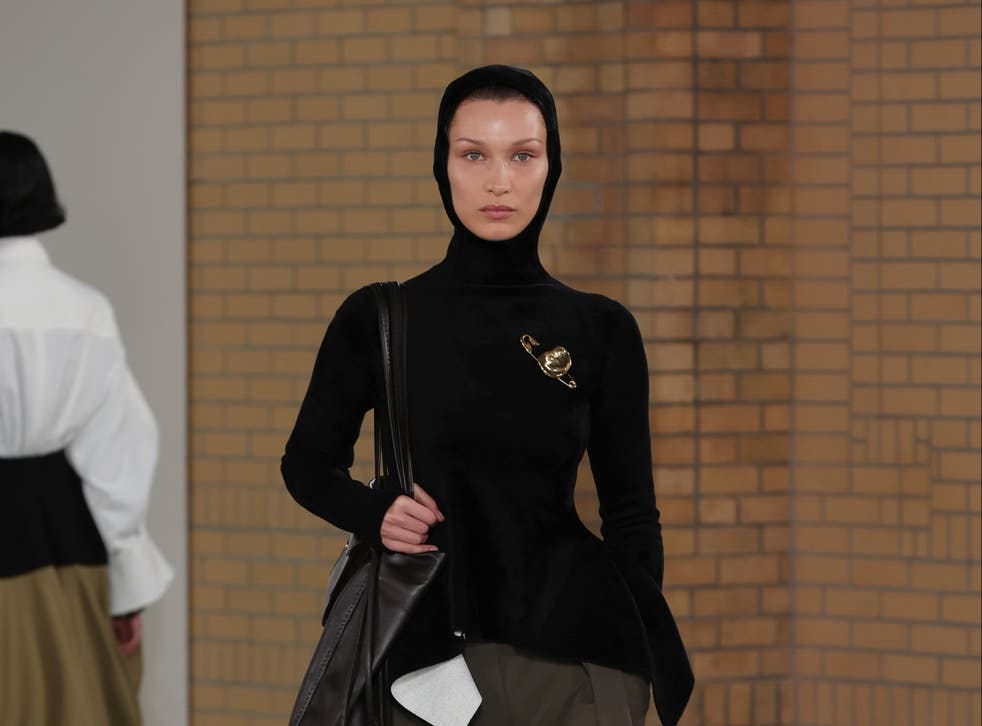New month , new newsletter...same ol' discourse
Hello , Aslamu alaikum and welcome,
This is the first of what I hope will be a creative outlet and exercise I commit to. Welcome to Intersctionally yours. A biweekly newsletter written by me Sawsan, that explores what it is like to be a visible Muslim hijab-wearing woman of color in the communications and marketing space.
So without further ado…here’s what has been only radar.
How the Trojan horse affair podcast tackles Islamophobic tropes…8 years later
If you are anything like me and have binged the Trojan horse affair over a single weekend and hungrily searched for any mention about NYT's latest Serial podcast then you are not alone.
If you don’t know what I am talking about then you are in luck! Here is a background on the scandal that rocked Britains Schools and Islamic community detailed in an article by the Guardian that will tell you all you need to know about this critical moment in British history.
However, if you want a quick snapshot, here’s how Serial introduces us to the story:
A strange letter appears on a city councillor’s desk in Birmingham, England, laying out an elaborate plot by Islamic extremists to infiltrate the city’s schools. The plot has a code name: Operation Trojan Horse.
The story soon explodes in the news and kicks off a national panic. By the time it all dies down, the government has launched multiple investigations, beefed up the country’s counterterrorism policy, revamped schools and banned people from education for the rest of their lives.
Well..if that didn’t get you on the edge of your seat and scrambling to download the series I don’t know what will.
Anyways, my aim isn’t to spoil the 8 part series for you and tell you whether you get to find out who wrote that damaging letter that led to strategic targeting and inquiry into 25 Birmingham schools by the former national head of counter-terrorism.
What I wanted to do is discuss how compelling I found Hamza Syed, one of the two hosts of the show who sees the drama unfold in his home city Birmingham. How I felt equally frustrated at the challenges he faced investigating this story, and how I love that it was told through a British-Pakistani MUSLIM journalistic lens, something we often don’t get a chance to do. Which is tell our side of the story and why this matters to us.
So here are three key important themes I wanted to highlight on the show overall.
Chasing the truth no matter what
The show revolves around two journalists who go through a paper chase to put together on their own, a credible theory for why a letter that marked a nationwide scandal made its way to the Birmingham city council… and who actually stood to benefit from it.
It’s important two note that it’s two journalists who did this, not detectives, not the police, not the UK government. Two investigative journalist 👀 👀
Taking a journalistic stance in storytelling
Brian and Hamza have this ongoing conversation and dynamic through out the series on what good investigative journalism looks like in this day and age. The question that often pops up is whether “good journalism” requires a non-partisan, neutral approach to allow the listener to make up their own mind, OR whether it is necessary to have an approach that reflects the history and experiences of marginalized people which incidentally this story is about. I vote for the latter.
There was a bit in episode 2 where Hamza and Brian initially interviewed Sir Albert Bore a leader of Birmingham city council until 2015. When questioned about the affair his responses where very vague, non committal and airy. In the moment Hamza describes numerous ‘horrible red flags that almost seem deliberately missed and how his identity as a British Muslim makes it almost impossible for him to be impartial,
Calling out the shift in narrative when marginalized communities are involved.
Finally the show clearly showcases how the Trojan Horse letter which was categorically de-bunked by Birmingham city council and counter-terror police, yet single-handedly tarnished the image of a long-standing community of students, leaders and educators as well as it being weaponized to form a narrative of anti-Muslim sentiment on a nationwide scale. Which I frankly applaud!
In fact since the launch of this podcast there have been numerous complains and accusations that this portrayal is a “misleading picture” of events which was aimed at exonerating Tahir Alam, the alleged ringleader of the plot. The outcry has even resulted in The New York Times quietly re-recording parts of the podcast about the Trojan Horse affair following complaints from government leaders and the British Humanists. Which in my opinion means that the story did what it set out to do!
All in all this is another great series from Serial. Go have a listen if you enjoy a good story and let me know what you think, do you agree with some of these points made?
Did Bella Hadid become Muslim women’s most vocal spokesperson?
It’s not your job to tell women whether or not they can STUDY or PLAY SPORTS, ESPECIALLY when it is pertaining to their faith and safety…
Is what Bella wrote on her page as she took to Instagram last week to vocalize her distaste for the abhorrent systematic discrimination against Muslim women being denied to wear their hijab in countries such as France, Canada and as of late India. This resulted in praise, news articles and cheers from Muslim influencers and opinion leaders who congratulate the model for being an ally.
Personally, I’d like to thank Bella Hadid for doing this, I love that she is using her platform to speak about an issue that I as a hijab-wearing Muslim woman experience first hand. But is it enough? Is posting about really going to change conditions, policies or simply just raise awareness.
I am a firm believer that knowing is half the battle and yes, she went above and beyond by also using her platform to shine a light on a her friend @TaqwaBintali a creative director and fashion consultant who shares her thoughts on the root cause of the Hijab discourse, which ultimately stems from misogyny and the need to control what women wear.
What I’d really love to see is Bella passing the mic to Muslim women who face daily hatred and vitriol being spewed at them for choosing to wear a piece of garment on their head. Women who are in spaces where they fear for their own safety in case someone yanks their veil or tells them they are oppressed for wearing one. For showing the unbridled bravery displayed by individuals like Muskaan, the Muslim girl in Karnataka who defiantly chants Allahu Akhbar “God is Great” as she stood alone in front of a mob who stopped her from entering her school and continuing her education.
That is it from my end folks. Hope you liked my musings…see you again in two weeks



